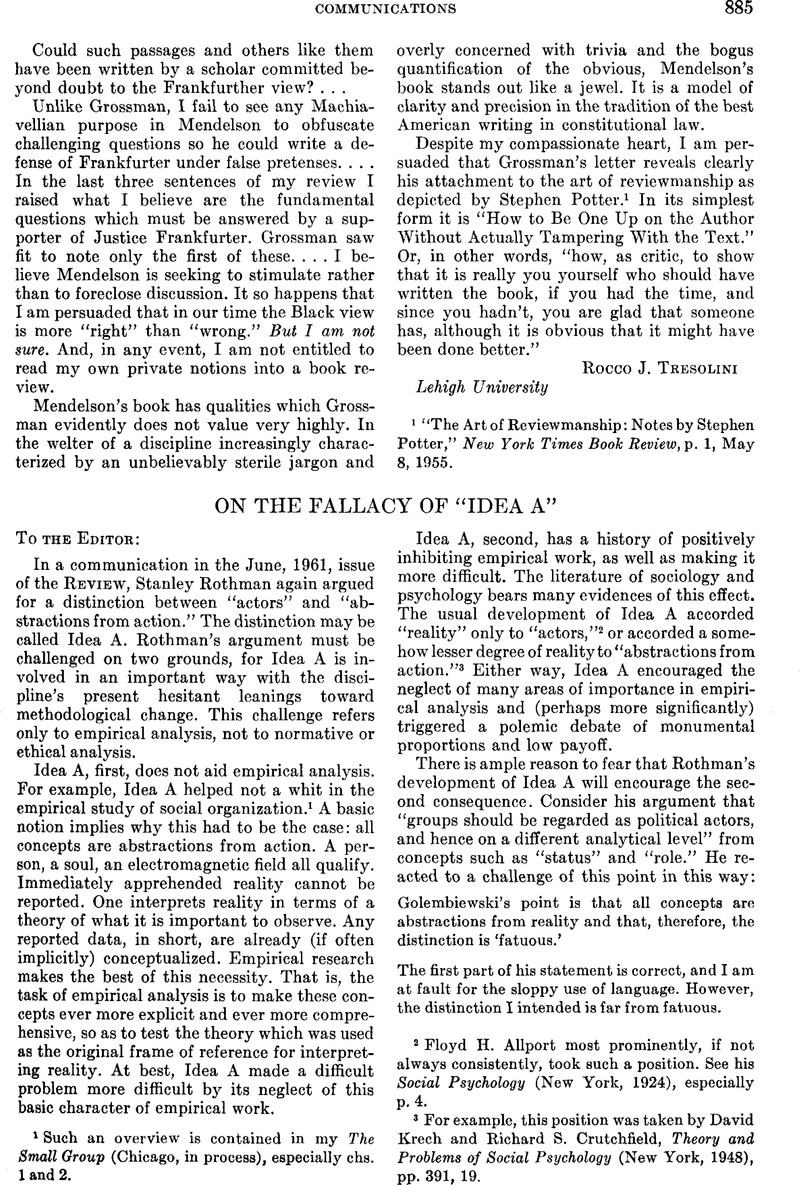No CrossRef data available.
Article contents
On the Fallacy of “Idea A”
Published online by Cambridge University Press: 01 August 2014
Abstract

- Type
- Communications
- Information
- Copyright
- Copyright © American Political Science Association 1961
References
1 Such an overview is contained in my The Small Group (Chicago, in process), especially chs. 1 and 2.
2 Floyd H. Allport most prominently, if not always consistently, took such a position. See his Social Psychology (New York, 1924), especially p. 4 Google Scholar.
3 For example, this position was taken by Krech, David and Crutchfield, Richard S., Theory and Problems of Social Psychology (New York, 1948), pp. 391, 19CrossRefGoogle Scholar.
4 Levy, Marion J. Jr., The Structure of Society (Princeton, 1952), pp. 88–89 Google Scholar.
5 Bohm, David, Causality and Chance in Modern Physics (New York, 1957), especially ch. 2Google Scholar.



Comments
No Comments have been published for this article.